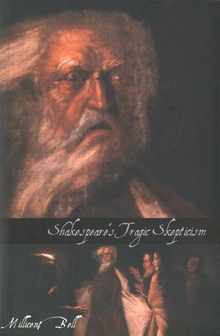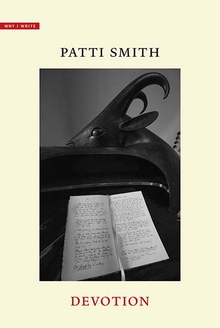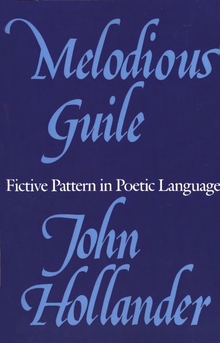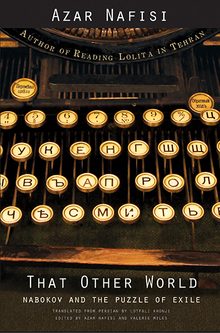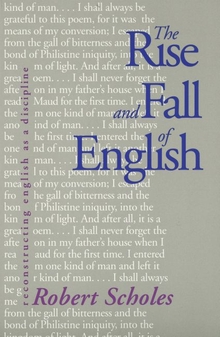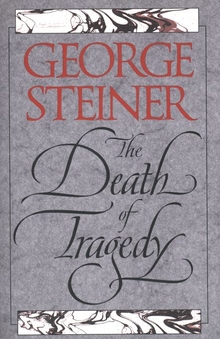Shakespeare’s Tragic Skepticism
WARNING
You are viewing an older version of the Yalebooks website. Please visit out new website with more updated information and a better user experience: https://www.yalebooks.com
Millicent Bell
Readers of Shakespeare’s greatest tragedies have long noted the absence of readily explainable motivations for some of Shakespeare’s greatest characters: why does Hamlet delay his revenge for so long? Why does King Lear choose to renounce his power? Why is Othello so vulnerable to Iago’s malice? But while many critics have chosen to overlook these omissions or explain them away, Millicent Bell demonstrates that they are essential elements of Shakespeare’s philosophy of doubt. Examining the major tragedies, Millicent Bell reveals the persistent strain of philosophical skepticism. Like his contemporary, Montaigne, Shakespeare repeatedly calls attention to the essential unknowability of our world.
In a period of social, political, and religious upheaval, uncertainty hovered over matters great and small—the succession of the crown, the death of loved ones from plague, the failure of a harvest. Tumultuous social conditions raised ultimate questions for Shakespeare, Bell argues, and ultimately provoked in him a skepticism which casts shadows of existential doubt over his greatest masterpieces.
In a period of social, political, and religious upheaval, uncertainty hovered over matters great and small—the succession of the crown, the death of loved ones from plague, the failure of a harvest. Tumultuous social conditions raised ultimate questions for Shakespeare, Bell argues, and ultimately provoked in him a skepticism which casts shadows of existential doubt over his greatest masterpieces.
Millicent Bell is professor emerita of English literature at Boston University. Her previous books include Marquand: An American Life and Meaning in Henry James.
“Professor Bell offers a distinctly original account of skepticism as a deep part of the poetry, impact, rhythm and design of Shakespeare’s major tragedies. For this is ultimately not a discussion of ideas but of the power of Shakespeare’s drama. The book will make the complexity and weight of the tragedies newly intelligible to educated readers, while offering much that is fresh and revealing to those who have spent their lives with Shakespeare.”—Michael Goldman, Princeton University
“Millicent Bell makes a strong case for her argument that one can discern patterns of thought in Shakespeare, and that he is not simply a superb dramatist of playful oppositions who depicts human conflict through his amazing capacity for ‘negative capability.’ Here the argument is that Shakespeare was a skeptic whose philosophic ideas verged on nihilism, embracing a concept of the human soul that is ‘so elusive and variable as to bring its very existence into question.’ Bell’s lucid analysis of the major tragedies gives depth and intelligent insight to the study of philosophical thought in the work of a great dramatist.”—David Bevington, Phyllis Fay Horton Distinguished Service Professor in the Humanities, University of Chicago
“Bell’s lucid analysis of the major tragedies gives depth and intelligent insight to the study of philosophical thought in the work of a great dramatist.”—David Bevington, University of Chicago
“There is much to commend in this book. Millicent Bell’s style is always clear and vivid; I cannot think of another work comparable to this one.”—Helen Vendler, Harvard University
"Bell. . .offers a perceptive and illuminating examination of Shakespeare’s tragedies. . . . Her treatment is thoroughly versed in both Shakespearean criticism and literary theory without being heavy-handed or pedantic, yet it is illuminating and accessible to the general reader. Recommended for academic and public libraries."—Library Journal
"A lucid tour. . . . Bell’s application not only sheds critical light on these particular works, but opens up ’skepticism’ as a useful interpretive concept for her general and scholarly audience: no mean feat, given the vagueness into which the term has drifted in modern contexts. Along the way, her discussions unobtrusively and cogently illustrate the significance of matters to which few nonspecialist readers have paid much heed. . . . The book’s critical value, like its author’s boundless energy, goes undoubted."—Christopher Martin, Bostonia
"The general reader will find something new in this study which, despite its eccentricities, is engaging and colorful. This is a gloriously old-fashioned book which brings philosophical ideas of the unknowable to bear, finally, on an appreciation of the vitality and mystery of the stage. Above all, Shakespeare’s Tragic Skepticism is a celebration of Shakespeare’s effects on the modern psyche."—Katharine Craik, Times Literary Supplement
"Well written, clearly argued. . . . Designed to make [the book] accessible to the broadest possible audience. Highly recommended."—Choice
“Easy, pleasant reading. . . . [Bell] can be relied on to give a sane, balanced description.”—Manfred Weidhorn, Sixteenth Century Journal
“The real value of this book, even more than the strength and interest of some of its individual readings, is how well many of its ideas would teach. The questions Bell raises about character and motive are exactly the kinds of questions that students like to think about, her treatment of them is insightful and offers a sophisticated alternative to the character-based readings that inexperienced students tend to gravitate towards, and the gestures toward social and intellectual contexts are valuable reminders of what new students don’t know that specialists take for granted. And the writing is a reminder that academic prose can be clear and lively, and can convey complex ideas and intellectual enthusiasm simultaneously.”—Nova Myhill, Renaissance Quarterly
"This is an urbane and intelligent book full of wise perceptions, the best sort of literary criticism."—Religion and the Arts
ISBN: 9780300092554
Publication Date: December 11, 2002
Publication Date: December 11, 2002
304 pages, 5 1/2 x 8 1/4

